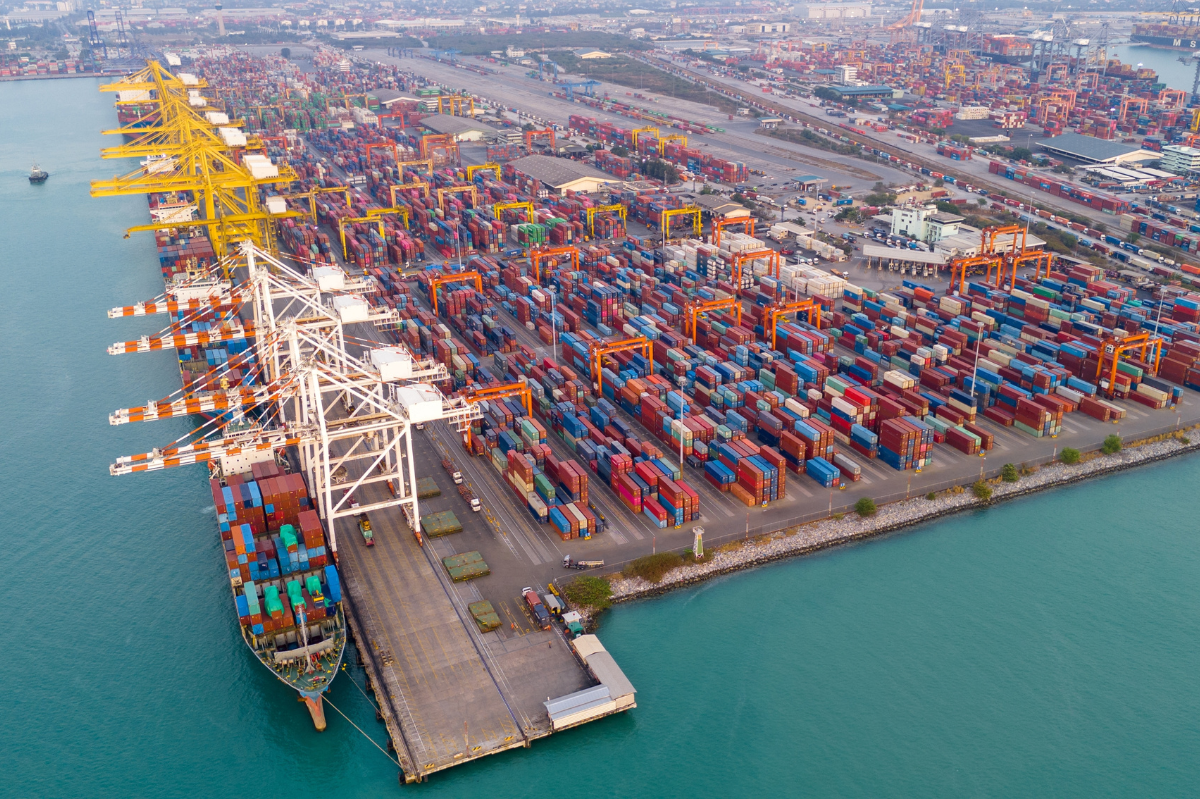The expiration of the de minimis exemption marks a significant shift in how goods enter the United States, with wide-ranging implications for both U.S.-based businesses and international companies shipping into the U.S.
The de minimis rule previously allowed many low-value imports to bypass duties and taxes, but with this policy change, companies must now adapt to higher costs, new regulations, and increased compliance requirements. Importantly, U.S. businesses shipping domestically will not experience any changes, giving them a significant opportunity to gain an edge against international competitors. Here’s what you need to know about this new policy, and how businesses can prepare to stay competitive.
What Was the De Minimis Exemption?
The de minimis exemption (or minimis exemption) allowed goods valued under $800 to enter the U.S. duty free, without incurring tariffs, taxes, or burdensome customs documentation. The Trump Administration, Homeland Security, and Congress passed provisions to strengthen trade enforcement, and this exemption became a focal point for debates around imports and low-cost imports.
The de minimis rule led to massive growth in such shipments: the number of de minimis shipments increased from 140 million in 2014 to over 1.36 billion by 2024. In fact, over four million de minimis packages were processed daily in the U.S. before the changes. The White House and agencies like Customs and Border Protection highlighted that this created vulnerabilities in national emergencies, security, and unfair competition for small businesses.
With its expiration, all imported goods, regardless of value, are now subject to tariffs, duties, and customs regulations. This creates new layers of cost, administrative burdens, and compliance requirements for global companies shipping into the U.S.
What This Means for U.S. Businesses Under the De Minimis Rule
For mid-sized to enterprise-level businesses in the U.S., especially those in ecommerce, wholesale distribution, 3PL, subscription services, and manufacturing, the expiration creates an opening:
- No Change for Domestic Shipments
U.S. companies shipping domestically will not see new duties, taxes, or compliance obligations. This stability provides a platform to win against international sellers now facing higher costs. - Competitive Advantage Opportunities
With international competitors experiencing higher prices, delays, and stricter compliance requirements, U.S. businesses can highlight faster delivery, lower shipping costs, and hassle-free returns. This levels the playing field and positions domestic sellers to capture more consumers.
What This Means for International Businesses Shipping to the U.S.
For international sellers, the end of the duty free de minimis threshold raises major challenges:
- Higher Shipping Costs & Duty Rates: International companies will see imports into the U.S. become more expensive. Consumers will face payment of duties and taxes at checkout, leading to potential price increases and reduced conversion rates.
- Longer Lead Times & Compliance: Increased customs regulations and compliance checks will slow transportation, creating delivery delays.
- Pressure to Localize: Many companies may need to explore U.S.-based warehousing, fulfillment, and deal arrangements with local carriers to remain competitive.
- Global Impact: Postal services in over 30 countries have already paused or limited such shipments to the U.S. due to the new de minimis regulations, creating ripple effects in global trade.
How U.S. Businesses Can Turn This Into an Advantage
This shift doesn’t just create challenges—it also opens opportunities for U.S. businesses:
- Leverage Domestic Fulfillment & Compliance: Since U.S. companies shipping domestically are unaffected, they can emphasize faster transportation, hassle-free returns, and simpler importation compliance compared to other countries facing stricter barriers.
- Optimize Multi-Carrier Strategies: Balancing carriers and service levels will be essential to keep costs competitive and customers satisfied.
- Use Analytics to Navigate Price Increases: Tracking cost changes at a SKU, channel, and shipment level will help businesses adjust without losing market share.
- Strengthen Supplier Relationships: Exploring nearshoring, sourcing from the European Union or Canada, or diversifying origins of imports can help reduce exposure to high duty rates and tariffs.
- Marketing Strategy: U.S. companies can leverage this situation to enhance their branding and marketing by emphasizing:
- Faster Delivery Times: “Delivered from U.S. warehouses—no waiting for international shipping.”
- Lower Costs for Customers: “Duty-free domestic shipping keeps prices stable for you.”
- Hassle-Free Returns: “Simple returns from within the U.S.—no international paperwork.”
- Support for Local Economy: “Shopping domestic supports American jobs and manufacturing.”
- Compliance and Reliability: “Fully compliant shipping without unexpected duties or taxes.”
Where VESYL Can Help Businesses Facing the End of the De Minimis Exemption
At VESYL, we recognize the pressure that businesses now face as they adapt to this new policy. Our platform helps simplify multi-carrier logistics, streamline compliance, and provide the real-time insights needed to comply with new provisions without slowing growth. In light of the de minimis exemption expiration, VESYL can help:
- Identify cost-saving shipping routes and carriers, even under higher duty rates.
- Provide real-time analytics on fulfillment costs and price increases.
- Streamline customs documentation and compliance workflows.
- Support scaling strategies so companies remain competitive in the global market.
Get hands-on support from our shipping specialists—schedule a consultation now.
Key Takeaway: Adapting to the End of the De Minimis Rule
The expiration of the de minimis exemption—once criticized as a loophole that benefited international retailers at the expense of U.S. businesses—creates new challenges for global sellers but opens a significant competitive edge for domestic companies. U.S. businesses shipping domestically remain unaffected and can leverage this stability to win over consumers with lower prices, faster delivery, and stronger fulfillment experiences.
As President Trump, the Administration, and Congress have signaled, this move reflects broader concerns around trade, and security. The change will be debated in court, impact members of the global trade system, and reshape how companies manage imports. For agile U.S. businesses, it’s also a chance to strengthen market positioning, enhance brand messaging, and communicate their domestic advantages to customers.
Related Topics
Learn how VESYL can save you money on shipping
Not sure which plan suits you best? Have questions about our software? Contact our sales team for expert guidance.


.png)


.png)

